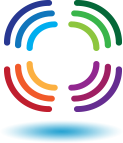Drug addiction refers to a complex condition characterized by strong and intense craving for drugs and compulsive drug use which is often controlled by effective drug rehab programs. Drug addiction usually begins with the voluntary habit of taking drugs, but over time, one’s ability to stop it is compromised and drug use becomes compulsive. This habit is majorly triggered by the effects of persistent drug exposure to the brain. Addiction can interfere with multiple brain functions, such as those responsible for motivation, learning, memory and behavioral control.
Since drug addiction is multi-dimensional and affects many aspects of your life, the treatment process is a bit complex. Effective drug rehab programs usually consist of many elements, which each focused on a given aspect of the condition and its effects. The goal of the addiction treatment is to help you stop drug use, lead a healthy drug-free lifestyle as well as ensure productive functioning at work, in the family and in the society. Since addiction is a chronic condition, you cannot just stop drug use for a couple of days and be totally cured. Many addiction patients require long-term care to attain prolonged abstinence and recovery.
Be In Treatment Within 24 Hours To Start Your New Life Today!
877-611-4318
Principles Of Effective Drug Rehabs
Scientific studies indicate that treatments can help drug addicts to stop drug use, avoid relapse and recover their lives. But there are some key principles which determine the effectiveness of drug rehab programs. They include:
- Drug addiction is a multi-dimensional but treatable condition that can interfere with one’s behavior and brain function.
- There is no single appropriate treatment solution for everyone
- Effective treatment solutions address multiple aspects of one’s life and not the drug abuse only
- It is important to follow treatment for the recommended period of time
- The treatments are majorly based on individual and group counseling, medications and behavioral therapies.
- The treatment plans of an individual should be assessed and modified continually to ensure it corresponds to his/her changing needs.
- Most drug addicts also exhibit other mental problems
- Although detoxification is the first stage in drug addiction treatment, it does not change long-term drug abuse.
Effective Drug Rehab Approaches
Medications are used in various stages of the addiction treatment process. They can be used to suppress withdrawal symptoms during the detoxification process. Professionally- guided detoxification is just the first procedure in addiction treatment hence should not be considered as the treatment.
Medications also help to normalize brain function, prevent relapse and reduce cravings. There are different medications depending on the drug one is using. But most people with serious addiction problems usually use multiple drugs and would require medications for all drugs that they abuse. Here are some of the common drugs and their corresponding medications.
Opioids: Buprenorphine, naltrexone and methadone are some of the effective medications used to treat opiate addiction. Methadone and buprenorphine are used to not only suppress withdrawal symptoms but to relieve cravings too. Naltrexone blocks the effects of opioids, such as heroin and morphine, at the receptors and should only be administered to people who already undergone detoxification. The medications are geared towards setting the patients free from drugs and making them more responsive to behavioral therapies.
Alcohol: There are three popular medications for treating alcohol abuse; disulfiram, naltrexone and acamprosate. Naltrexone blocks the receptors of opioids responsible for enhancing alcohol craving and drinking effects. Acamprosate reduces withdrawal symptoms such as restlessness, anxiety, insomnia and dysphoria. Disulfiram diminishes degradation of alcohol, which in turn leads to unpleasant reactions such as nausea, palpitations and flushing in case the patient tries to take alcohol.
Behavioral Drug Rehab Treatments
These drug rehab programs can be offered in many different ways, using a number of behavioral approaches. The common forms of behavioral therapy include:
- Cognitive-behavioral therapy: It helps patients to recognize and avoid situations which can drive them to drug abuse.
- Multidimensional family therapy: This addresses a number of aspects that influence one’s drug abuse patterns and is designed to improve overall family functioning.
- Motivational interviewing: This encourages patients to be ready to change their habits and behavior.
- Motivational incentives: This utilizes positive reinforcement to promote abstinence from drugs.
Behavioral treatments aim at helping patients to follow the treatment process, change behaviors and attitudes triggered by drug addiction and promote life skills. These drug rehab treatments can also increase the effects of medications and help patients stay in treatment for a long time.
Regain The Trust Of Your Family And Friends Today!
877-611-4318






 Medical DetoxTreatment Center Finder has placed countless people into a medical detox for drugs and alcohol. We know what you are going through and will work to find the best detox for your individual needs. Learn More...
Medical DetoxTreatment Center Finder has placed countless people into a medical detox for drugs and alcohol. We know what you are going through and will work to find the best detox for your individual needs. Learn More... Inpatient TreatmentGetting into an inpatient treatment center is the best thing someone can do when facing an addiction to drugs and alcohol. Learn more about our network of residential facilities. Get Help Today...
Inpatient TreatmentGetting into an inpatient treatment center is the best thing someone can do when facing an addiction to drugs and alcohol. Learn more about our network of residential facilities. Get Help Today... Rehab In Your StateWe are here to help you find a rehab whether you are looking in or out of your state. Get away from addiction through one of our rehab centers - the top treatment centers in the nation. Find a Rehab...
Rehab In Your StateWe are here to help you find a rehab whether you are looking in or out of your state. Get away from addiction through one of our rehab centers - the top treatment centers in the nation. Find a Rehab...

Leave a Reply